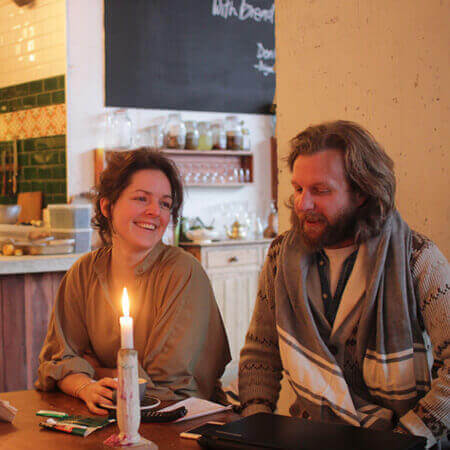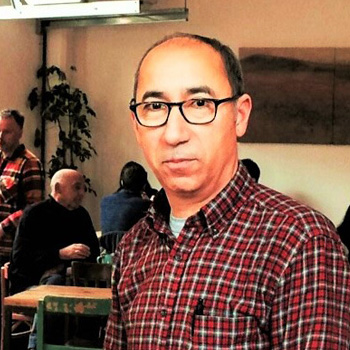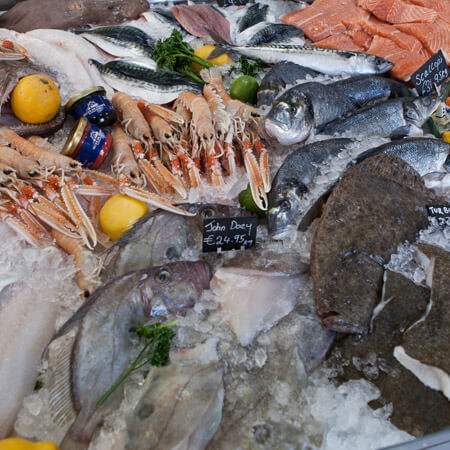Dubliners are incredibly lucky to inhabit a city with such foodie inclinations and culinary largesse.
Right now, the city’s food scene offers an exquisite blend of Michelin-starred fare, outstanding food markets, hipster eateries and friendly local restaurants. And let’s not forget the evolution of our drink culture either.
We were once a city of avowed tea drinkers and pint lovers; we’re now as au fait with cocktails and customised artisan coffee blends as any seasoned mixologist or barista.
The Dublin Food Chain collective
Dublin has succulent resources too. Arguably, it has some of the best dairy products, organic vegetables and internationally-acclaimed meats in the world. And Dublin Food Chain is working hard to ensure that the city’s unique food heritage gets the recognition it deserves.
Since 2010, Dublin Food Chain has been promoting and expanding Dublin’s food sector through training, networking and marketing initiatives. It works with Dublin’s Local Enterprise Offices and is supported by Bord Bia to create a collective of food businesses that can benefit from working together.
Traditionally, more food producers emerged from the regional areas.
So who exactly makes up the Dublin Food Chain? Essentially, every sector of the industry is represented – from producers, retailers, and suppliers to cafés, delis, restaurants and bars. And, indeed, anyone who works in the food industry and is passionate about using locally-sourced ingredients.
Its 190-strong, and constantly growing, membership base includes companies big and small, from fruit and vegetable growers Keelings to dairy-free ice-cream makers Nobó.

According to James Burke, Dublin Food Chain’s network manager, Dublin is now the largest geographical area for emerging food businesses.
“Traditionally, more food producers emerged from the regional areas,” he says. “This has reversed in the last few years, because of the supports that have been put in place by the Local Enterprise Offices.”
Supports and programmes
Now, startups emerging with a new food idea can participate in food-specific programmes. There’s the two-day Kick Start Your Food Business programme and the more in-depth Food Academy programme, for example. (Taking part in the former helps businesses secure a place in the latter.)
While those looking to the export market have options like the Food Works accelerator programme. And they’re all proving to be quite effective.
Dublin Food Chain says its goal is to help the county nurture its enviable status as an iconic food brand.
Successful Dublin Food Chain member Nobó took part in both.
Dublin Food Chain also runs information sessions, networking events and industry talks. This helps inform the city’s food businesses about upcoming trends and how to market their products. The networking opportunities it provides can also lead to cross-promotion opportunities, collaborations and even new contracts between its members.
Challenges faced by its members
While the Dublin Food Chain has rich ingredients to work with, it still faces challenges. From the food producer’s point of view, Burke says these include the logistics of getting deliveries around Dublin’s busy streets and the lack of areas available for food trucks to sell from.
Although the current version of the Dublin City Development Plan for 2022-2028 notes how markets and food retailers make the city more interesting and makes commitments to help support and promote them.

The collective has been pushing its agenda in a number of ways, hosting mentor events and facilitating fact-finding trips to other food-forward cities. They also have over 40 interns from TU Dublin working with Dublin’s food producers to support projects, such as the creation of digital media strategies.
Ultimately, Dublin Food Chain says its goal is to help the county nurture its enviable status as an iconic food brand. There’s certainly no doubt that there’s a huge appetite, from consumers and producers alike, for the collective to achieve this delicious aim.
Find out more over on Dublin Food Chain’s website.



